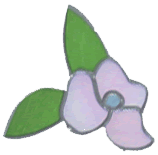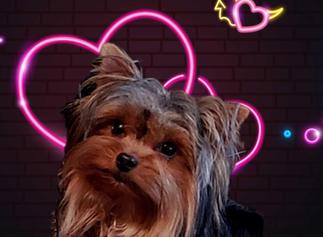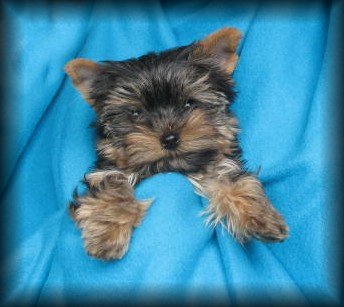FAQs
Spirit Valley Family
Is a Small Breed the right dog for our family?
The question regarding the "right" breed for your family is purely a personal one based on your family's needs and activities. A "Companion" breed needs to be an integral part of your household and interact with family members - they are terrific for the family who likes to travel (easily tucked under the seat of an airplane or curled up in an RV). They are also highly intelligent and active, and have done exceptionally well in competitive obedience and agility. Take a look at your family situation, needs, and how much time that you have to interact with a new family member.
Is a Small Breed good with children?
A Small Breed puppy is fabulous with children, "IF" your children are kind, respectful, and well supervised. We have placed puppies with families with kind 2-year-olds, and refused families with insensitive, undisciplined 12-year-olds. Parents have to be savvy with the young puppy and young child - sit on the floor with the puppy and child to let them interact. If you are not available, then put the puppy in a crate or safe place until you are available.
How should my house be prepared when I bring my new puppy home?
Your house should be "puppy proofed" - think of a 2-year-old toddler. All electrical cords (hair dryers, curling irons, lamp cords, and don't forget all of the "computer stuff," etc) should be tied up and off of the floor - puppies love the texture, size and feel of these cords. Pickup all plants that the puppy could have access to (they could be toxic). Do not have anything hanging from a table that could be pulled off, and pick up items from the floor that could easily be knocked over. The puppy should initially be contained in a small area where he can be watched - close bedroom and bathroom doors - obtain baby gates to close off areas of the house where you do not want the puppy to explore. Keep all items off of the floor that you do not want to become the puppy's possession - they can have dozens of toys and chewys, but your new article of clothing or shoes could be more appealing.
A Buddy, and Training
Whether large or small, canines are pack animals...a puppy being left alone for long periods of time...needs a buddy, whether it be animal or human. And, then there's the most critical time period of a puppy's learning process (the time that determines the type of adult he will become)....it's up to14 weeks of age (compare this to a toddler that receives limited direction in the critical first 5 years of its life). A good example is some of the dogs that we see in rescue...they didn't receive good direction as baby dogs...now they're out of control, and the owner no longer wants them.
I tell new owners that their puppy is a blank slate, and the adult that he becomes is dependent upon their direction....also, I recommend a puppy class after 12 weeks, following 3rd vaccine.) My owners are normally retired, work from home, pet friendly work place, one family member at home, close to work to come home on lunch hour, hire, or have a friend/neighbor check on puppy during the day, or have another interactive pet.
Bathing
Baby shampoo is fine, but never use concentrated shampoo (very difficult to rinse out) on your puppy...always dilute (fill a glass with warm water and stir in a squirt of shampoo). Wrap in towel to help absorb water...then blow dry on low heat.
For a touch up between baths...moist wipes are terrific!
Help!! How do I potty train my puppy?
These little guys are very intelligent and love to please - it's just a matter of adequately conveying to them what you desire, and rewarding them when it is accomplished.
If your puppy has an accident it is YOUR FAULT - not his - he has NOT been taken out frequently, or you have MISSED the key points throughout the day:
Never punish - punishing your puppy can damage your relationship and can erase all of the house-training progress you have made together. The puppy will not realize why you are angry (he's only acting on an instinct) - and that "guilty" look is a "submissive" one, with the puppy doing his best to appease his owner, who is angry for some reason. Punishment can also result in hiding to do their business - all training should be a positive one.
We feel that crate training is very beneficial to potty training. Feed the puppy in the crate, and after a certain amount of time - take the puppy outdoors. If the puppy does not eliminate, place him back in the crate and wait additional time and repeat the process. p.s. we always cover our crates with a towel (like a bird cage) there are no outside distractions this way. There are also experts that recommend the "umbilical method" where the puppy is wearing a harness & leash attached to your belt - he's always within sight and reach (due to size, we would not recommend this until puppy is older).
Good Luck Everyone!!!
~ Rani MorningStar ~
Copyright 2004 - 2024 ~ All Rights Reserved





